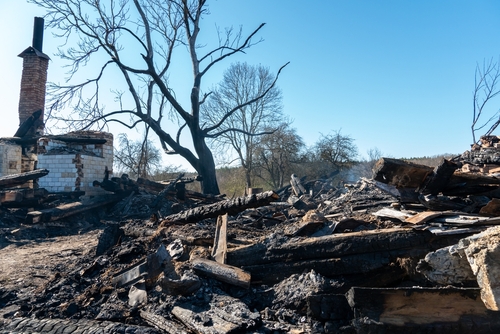The Internal Revenue Service said Monday that victims of wildfires in parts of Hawaii that began on Aug. 8 have until Feb. 15, 2024, to file their taxes.
The IRS also delayed Form 5500 filing deadlines.
Following the disaster declaration issued by the Federal Emergency Management Agency (FEMA), individuals and households affected by wildfires residing or having a business in Maui and Hawaii counties qualify for federal tax relief.
The declaration permits the IRS to postpone certain tax filing and tax-payment deadlines for taxpayers who reside or have a business in the disaster area. For instance, specific deadlines falling on or after Aug. 8, 2023, and before Feb. 15, 2024, are granted additional time to file.
As a result, the IRS said affected individuals and businesses will have until Feb. 15, 2024, to file returns and pay any taxes that were originally due during this period.
This includes 2022 individual income tax returns due on Oct. 16, 2023. The IRS noted, however, that because tax payments related to these 2022 returns were due on Apr. 18, 2023, those payments are not eligible for this relief.
The Feb. 15, 2024, deadline also applies to:
- Quarterly estimated tax payments, normally due on Sept. 15, 2023, and Jan. 16, 2024.
- Quarterly payroll and excise tax returns normally due on Oct. 31, 2023, and Jan. 31, 2024.
In addition, businesses with an original or extended due date, including, among others, calendar-year partnerships and S corporations whose 2022 extensions run out on Sept. 15, and calendar-year corporations whose 2022 extensions run out on Oct. 16 also qualify for the Feb. 15, 2024, deadline.
Penalties on payroll and excise tax deposits due on or after Aug. 8, 2023, and before Sept. 7, 2023, will be abated as long as the tax deposits are made by Sept. 7, 2023.
If an affected taxpayer receives a late filing or late payment penalty notice from the IRS with an original or extended filing, payment, or deposit due date that falls within the postponement period, the taxpayer should call the telephone number on the notice to have the IRS abate the penalty.
The IRS automatically identifies taxpayers in the covered disaster area and applies for filing and payment relief. Affected taxpayers who reside or have a business outside the covered disaster area should call the IRS disaster hotline at 866-562-5227 to request this tax relief.
SECURE 2.0 Disaster Provision
The language included in SECURE 2.0, Section 331, provides permanent rules relating to using retirement funds in the case of a qualified disaster.
Distributions are limited to $22,000 per disaster (rather than the usual $100,000) and may be repaid in the three-year period after the distributions. The Income inclusion is spread over three years.
Additionally, amounts distributed before the disaster to purchase a home would be permitted to be recontributed, and an employer would be allowed to provide for a larger amount borrowed from a plan by affected individuals and for additional time for repayment of plan loans owed by affected individuals.
Affected Taxpayers
Taxpayers considered affected taxpayers eligible for the postponement of time to file returns include individuals who live and businesses (including tax-exempt organizations) whose principal place of business is in the covered disaster area.
In addition, all relief workers affiliated with a recognized government or philanthropic organization assisting in the relief activities in the covered disaster area and any individual visiting the covered disaster area who was killed or injured because of the disaster are entitled to relief.
This relief also includes the filing of Form 5500 series returns that were required to be filed on or after Aug. 8, 2023, and before Feb. 15, 2024, are postponed through Feb. 15, 2024, in the manner described in section 8 of Rev. Proc. 2018-58. The relief described in section 17 of Rev. Proc. 2018-58, pertaining to like-kind exchanges of property, also applies to certain taxpayers who are not otherwise affected taxpayers and may include acts required to be performed before or after the period above.

